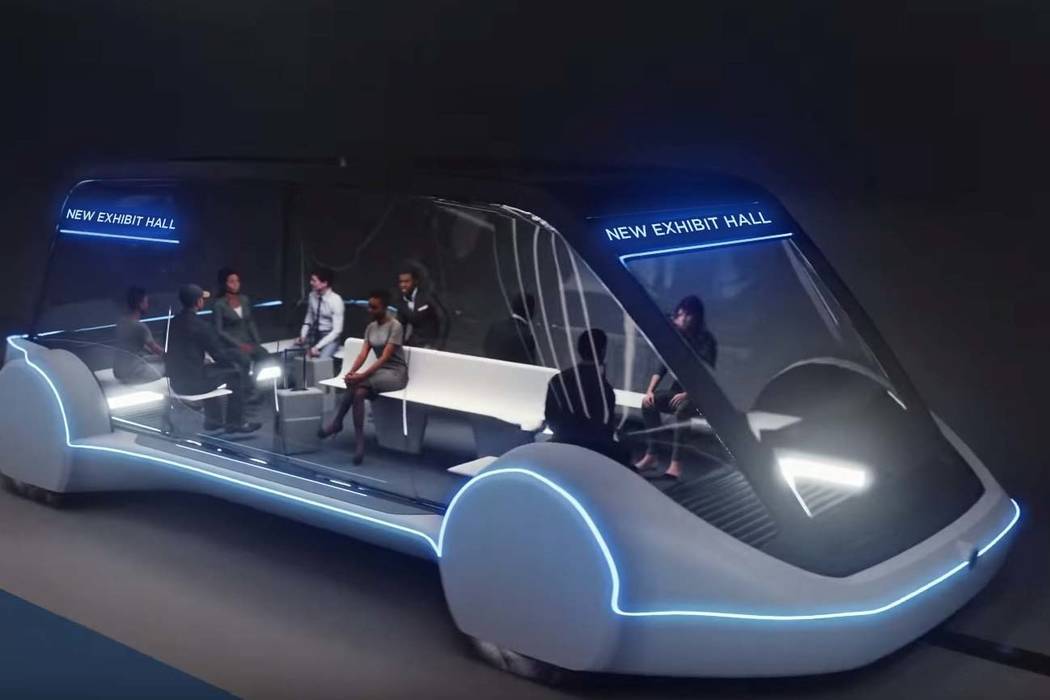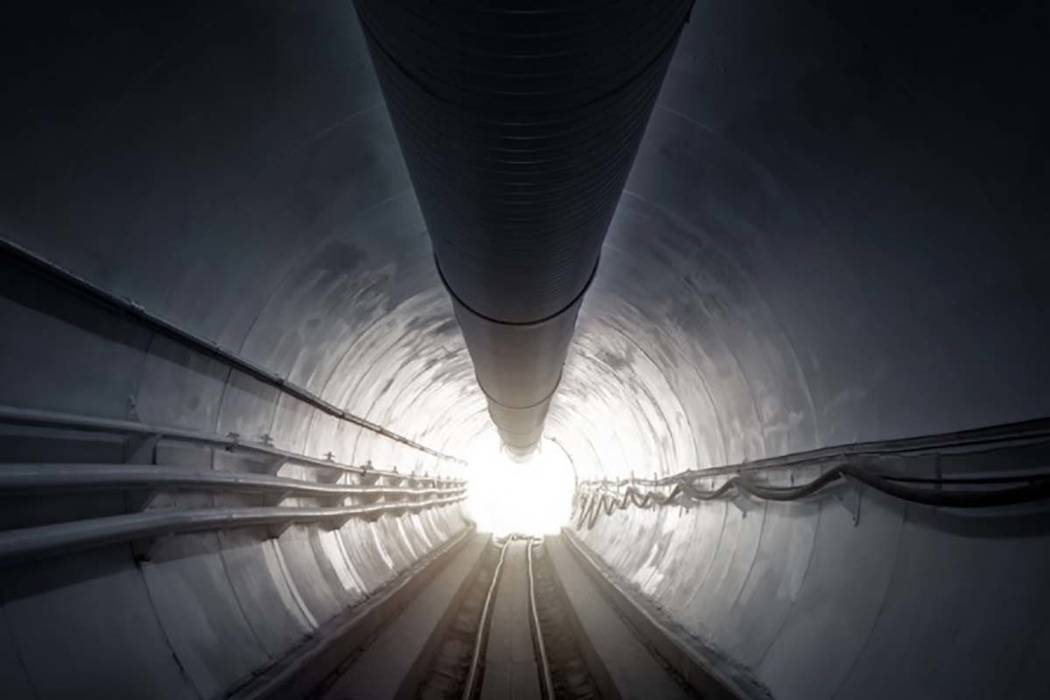LVCVA approves nearly $50M contract for underground transit system
The Las Vegas Convention and Visitors Authority hopes to make history by going underground.
The organization’s board voted 13-1 Wednesday in a special meeting to approve a $48.7 million contract with Hawthorne, California-based The Boring Company, a spinoff of Elon Musk’s SpaceX venture, for a people-mover transit system underneath the Las Vegas Convention Center.
It would be Boring’s first commercial deployment of a system, made possible with tunneling equipment that also manufactures bricks from the rocks and dirt removed in the drilling process.
The transit concept is a point-to-point on-demand system with vehicles capable of transporting up to 16 people at a time.
The system would use autonomous electric vehicles, or AEVs, on three types of Tesla Model X chassis with rubber tires, operated in automatic pilot mode.
The deal also would include developing less than a mile of twin vehicular tunnels, one pedestrian tunnel, three underground stations, elevators and escalators to access the stations and all of the back-of-the-house features for lighting, power, video surveillance, ventilation and life safety, cell phone and WiFi systems, intercom and public address systems and a control room.
The company plans to begin designing the system and pursuing permits from government entities, including Clark County, immediately with construction expected to begin around Labor Day. Completion is expected by December 2020, the same time a new exhibition hall is finished, and in time for CES 2021.
“The first thing that’s important is to get it right,” LVCVA President and CEO Steve Hill said after the meeting. “We want to do it as quickly as possible, but we want our customers to be comfortable with it.”
Boring Co. will be paid as it completes certain portions, starting with 2.65 percent on the project’s official start, a cumulative 8.4 percent when it completes excavation of its first station, a cumulative 15.75 percent after digging the first 100 feet of the first tunnel, among others. The company will ultimately have to prove an average 4,400 passengers per hour in capacity to get its final 100 percent pay.
Las Vegas Councilwoman Michele Fiore had expressed skepticism about the Boring system, but when it came time for the final vote Wednesday, she sided with the majority.
Las Vegas Mayor Carolyn Goodman, a member of the board, indicated at last week’s May meeting that she was concerned with entrusting a critical transit system to a company that had never delivered a system. She cast the lone vote against the project Wednesday.
When the Boring Company proposal was first introduced by the LVCVA in March, company president Steve Davis said pre-cast concrete tunnels would be built about 30 feet below grade level with a 12-foot inner diameter and a 13½-foot outer diameter.
The top of the tunnel generally will be no shallower than 30 feet and the bottom, 44 feet below the land surface. Tunnel depth can be adjusted where underground infrastructure like utility lines and foundations are deeper than usual.
Hill said the operation of vehicles as well as drilling the construction tunnels would be virtually undetectable on the surface.
Hill said one of the appealing aspects of the Boring process is that construction can occur without disruption to traffic or any other surface activity.
The other big appeal of the Boring concept is the ability to expand it. Davis and Hill have talked about the prospect of developing a network of underground tunnels to help solve Las Vegas’ growing transportation problems.
But on Wednesday, Hill also said he doesn’t expect a citywide system to replace Regional Transportation Commission buses, the Las Vegas Monorail, the taxi industry or ride-hailing companies.
“We need all of them, frankly,” Hill said. “It’s important that all of these systems work together.”
Once the contract for Boring was approved, the board approved a series of votes for a $525,500 contract with tunnel experts Mott MacDonald LLC to provide third-party review services for the project, an amendment to the owner’s representative agreement with Cordell Corp. to include the people-mover project within the purview of owner representative Terry Miller’s purview, and two bond sale resolutions to pay for people mover project.
Contact Richard N. Velotta at rvelotta@reviewjournal.com or 702-477-3893. Follow @RickVelotta on Twitter.



















